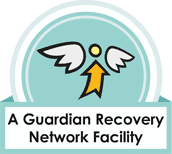Married in Recovery
Tips For Getting Sober Alongside Your Wife
If you and your wife have both been struggling with addiction for some time, you might be wondering, “Can I get sober with my wife? Is there a treatment option that will allow us to get sober together? How involved should we be in one another’s recovery?”
At Princeton Detox & Recovery Center we provide medically monitored detox for people who have been struggling with an addictive disorder of any severity. While it is great to have the support of a spouse during your recovery journey, getting sober requires you to focus on your own individual experiences and work through any underlying issues independent of your partner’s. Addiction treatment is a time to focus on personal growth, heal past wounds, learn healthy coping mechanisms, develop a sense of self-esteem and grow as an individual. Only once we become the best versions of ourselves are we able to truly be there for others and work on our existing relationships. You might be tempted to stick by your wife’s side every step of the way, but try to recognize that the most helpful thing you can do is allow her to work on herself while you work on yourself. To learn more about Princeton Detox & Recovery Center, contact us today.
Putting Yourself & Your Sobriety First
Putting your recovery first won’t come naturally when you first get sober. You might feel inclined to prioritize a range of other things: your career, your financial status, the well-being of your loved ones. Prioritizing your own well-being is a skill you’ll need to hone over time. Putting yourself and your sobriety first means consciously developing a routine that promotes your personal recovery program. Because self-care is probably foreign it might seem like you’re being selfish, but rest assured taking care of yourself is only going to help improve your interpersonal relationships and strengthen your marriage.
Below are several ways to put your sobriety first while being present for your wife and working on the relationship:
- Reevaluate your role in your marriage – Do you fill the traditional role of breadwinner? Do you feel pressure to support your family financially, and if so, do you pay enough attention to your own emotional and mental needs? Do you and your wife work as a team, or do you frequently criticize each other, creating a somewhat toxic home environment? Take an honest look at which areas of your relationship you could improve upon and focus on serving a new role in your relationship. This will come naturally over time the more you focus on your own recovery and personal development.
We Are Here For You
Let Us Help You Heal
Our Drug & Alcohol detoxification experience is second to none.
Learn how we can help by speaking with one of our Treatment Advisors today.
- Set and maintain healthy boundaries – This can be a difficult skill to learn if you have been married for years and your dynamics have seemingly been set in stone. However, learning to set and maintain healthy personal boundaries is going to vastly improve the functionality of your marriage while helping you prioritize your sobriety. For example, your wife might feel inclined to remind you to call your recovery mentor every evening. At the end of the day she might say, “Don’t forget to call your sponsor, babe!” Rather than jump down her throat and respond angrily with something like, “I’ve got it covered, mind your own business,” sit down with your wife and have a discussion about keeping your recovery programs separate. Say something like, “I appreciate your concern. I feel it’s important that we focus on ourselves, individually. I would really appreciate it if you let me work my program. I’ll do the same for you.” Make sure you communicate clearly, directly and honestly.
- Seek support outside of your marriage – If you have a problem with your boss, you might be inclined to unload onto your wife when you get home from work. If you start to feel overwhelmed by an upcoming visit with the in-laws, you might complain to your wife about the frequency and length of their visits. Remember, your wife is dealing with her own challenges just as you are dealing with yours. Rather than dump everything on her, work on developing your own circle of sober support to reach out to with any uncomfortable or stressful situations.
- Make sure you’re engaging in self-care on a daily basis – Self-care means prioritizing your personal needs. You might feel inclined to put your marriage first no matter what, but remember that your marriage will flourish when you and your wife begin focusing on your individual needs separately from one another. How can you engage in self-care on a daily basis? Make sure you’re getting enough sleep every night, eat three healthy meals a day, exercise for at least 30 minutes every day, maintain the boundaries you set in your interpersonal relationships, stay on top of your recovery program… you get the gist. Do what you need to do to look after your physical, mental, emotional and spiritual health.
- Address any co-occurring disorders or unresolved emotional issues – Most people who struggle with substance abuse simultaneously struggle with an underlying issue of some kind, whether that be a mental health disorder, unresolved trauma or a co-occurring behavioral addiction. Take the time necessary to work through all underlying issues by any means necessary, whether this means talking to a trauma therapist, seeking professional psychiatric care or seeking out an anger management support group. It is up to you to take initiative and make changes. No one else can do your healing for you.

Ready To Begin Your Detox?
Don’t let addiction control your life.
Call us today and let’s get you started on the path to a better you.
The Role of Family Therapy
Family therapy and marriage counseling are an important part of the recovery process for those who get sober while in a relationship. It is unrealistic to expect everything to align as soon as you and your wife get sober. Your issues will not magically fade away; you are still going to have to sort through the wreckage of your past at one point of another. This might seem daunting (it probably seems easier to simply ignore the past), but as soon as you seek outside help you’ll start to realize that even the most serious discrepancies can be effectively worked through with the insight and guidance of a trained professional. At Princeton Detox & Recovery Center we offer family therapy sessions as part of our therapeutically-based treatment program, and we are happy to refer our clients to marriage counselors or family therapists in their area. Contact us today for more information.
Our Straightforward Admissions Process
When you reach out to Princeton Detox & Recovery Center, whether by form, online chat or phone call, you will be instantly connected to one of our Treatment Advisors. Most of our Treatment Advisors are either in recovery themselves or have helped a loved one through the process. This allows them to have a unique, compassionate perspective and a deep empathy. We understand exactly what you are going through and are ready to help make the process of getting treatment simple and straightforward. Simply contact us and we will provide a complimentary addiction assessment, help work through potential coverage options and help coordinate local travel to our facility. All you or your loved one has to do is ask for help, and we will take care of the rest.

Reviewed for accuracy by:
Amanda Hilzer M.Ed, CAADC, IADAC, ICCS, LCADC, CCS
Amanda graduated from Lehigh University with both an undergraduate degree in Psychology and a Master’s of Education degree in Counseling Psychology and has worked in the field of substance use disorder treatment and mental health treatment as a counselor and as a clinical manager for over 14 years.


































